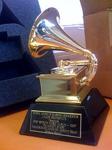 Like all major award shows, the Grammys have made a few gaffes over the years. There was the time a 40-year old standard was voted Song of the Year. And the time a compilation of old hits won as Album of the Year.
Like all major award shows, the Grammys have made a few gaffes over the years. There was the time a 40-year old standard was voted Song of the Year. And the time a compilation of old hits won as Album of the Year.The Best New Artist category has proved trickiest to get right. There was the singer who won Best New Artist for her sixth album. And the one who had won two Grammys two years earlier for her work with a chart-topping trio. And the one who had landed a top 10 hit the year before the year he won as Best New Artist. And, infamously, the one where the act didn’t sing a note on its album.
To its credit, the Recording Academy has amended its rules numerous times to prevent repeat occurrences. But some things you can’t prevent—like sympathy and emotion clouding judgment. Or voters just plain missing the boat.
Here are 15 outcomes that were unsettling for one reason or another. I decided to stick to the “marquee” categories—Album, Record and Song of the Year and Best New Artist. And I tried to focus on cases where Grammy voters missed an opportunity, not just cases where I might happen to like one record or artist more than another. These are listed in reverse chronological order.
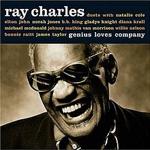 2004—Album of the Year and Record of the Year. Ray Charles was one of the all-time greats, but the time to recognize his artistry was when it was in full flower in the 1950s and 1960s. Indeed, he won nine Grammys in those years, but none in the marquee categories. Charles took five awards posthumously for Genius Loves Company, a collection of duets that was released three months after he died in June 2003. The sweep included Album of the Year and Record of the Year for “Here We Go Again,” a remake (with Norah Jones) of his 1967 hit. Charles was competing in both of these categories with Usher, who crushed the competition in 2004 much like Charles had dominated in 1962. Confessions would have been a better choice for Album of the Year. “Yeah!” (featuring Lil Jon & Ludacris) would have been a better choice for Record of the Year.
2004—Album of the Year and Record of the Year. Ray Charles was one of the all-time greats, but the time to recognize his artistry was when it was in full flower in the 1950s and 1960s. Indeed, he won nine Grammys in those years, but none in the marquee categories. Charles took five awards posthumously for Genius Loves Company, a collection of duets that was released three months after he died in June 2003. The sweep included Album of the Year and Record of the Year for “Here We Go Again,” a remake (with Norah Jones) of his 1967 hit. Charles was competing in both of these categories with Usher, who crushed the competition in 2004 much like Charles had dominated in 1962. Confessions would have been a better choice for Album of the Year. “Yeah!” (featuring Lil Jon & Ludacris) would have been a better choice for Record of the Year. 2000—Album of the Year. Steely Dan’s Two Against Nature won, but it seemed like Grammy voters simply couldn’t bring themselves to vote for Eminem’s The Marshall Mathers LP. Grammy voters have long been resistant to rap in the marquee categories. (The only rap album to win is OutKast’s Speakerboxxx/The Love Below.) And Eminem was the target of controversy at the time for lyrics that some deemed homophobic. For its part, Steely Dan probably should have won Album of the Year for 1981’s Gaucho, but the voters couldn’t resist giving it that year to Double Fantasy by John Lennon and Yoko Ono. Lennon had been shot to death three weeks after the album’s release.
2000—Album of the Year. Steely Dan’s Two Against Nature won, but it seemed like Grammy voters simply couldn’t bring themselves to vote for Eminem’s The Marshall Mathers LP. Grammy voters have long been resistant to rap in the marquee categories. (The only rap album to win is OutKast’s Speakerboxxx/The Love Below.) And Eminem was the target of controversy at the time for lyrics that some deemed homophobic. For its part, Steely Dan probably should have won Album of the Year for 1981’s Gaucho, but the voters couldn’t resist giving it that year to Double Fantasy by John Lennon and Yoko Ono. Lennon had been shot to death three weeks after the album’s release.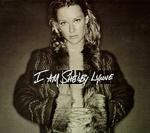 2000—Best New Artist. Shelby Lynne won for her sixth studio album, I Am Shelby Lynne. The rules have since been changed. Now, an artist may have released no more than three studio albums and still be considered for Best New Artist. Brad Paisley, Jill Scott, Papa Roachand Sisqo were the other nominees. Paisley, who won the CMA Award for Entertainer of the Year in 2010, has had the biggest career of any of the nominees.
2000—Best New Artist. Shelby Lynne won for her sixth studio album, I Am Shelby Lynne. The rules have since been changed. Now, an artist may have released no more than three studio albums and still be considered for Best New Artist. Brad Paisley, Jill Scott, Papa Roachand Sisqo were the other nominees. Paisley, who won the CMA Award for Entertainer of the Year in 2010, has had the biggest career of any of the nominees.1998—Best New Artist. Lauryn Hill won for her first solo album, The Miseducation Of LaurynHill. What’s the problem with that? Hill had been one-third of The Fugees, which won two Grammys two years earlier, including Best Rap Album for The Score. (The Recording Academy has since revised its rules. Now, once an act has won a Grammy, it can no longer be considered for Best New Artist). Hill’s competitors were Andrea Bocelli, Dixie Chicks, Backstreet Boys and Natalie Imbruglia. (For consistent, long-term success, Bocelli is probably out front.) P.S. We’re still waiting for Hill’s follow-up studio album.
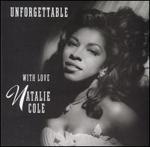 1991—Song of the Year. “Unforgettable” won, after being revived byNatalie Cole with her late father, Nat “King” Cole. The problem: It was a 40-year old song (and a standard, to boot). Nat Cole first had a hit with it in 1951. The academy has since tightened up eligibility rules: Songs are now eligible the year they first become widely known. The Coles’ single also won for Record of the Year. It’s a sumptuous and silky recording, but it had very little to do with the pop currents of 1991. Grammy voters should probably have given a second listen to R.E.M.’s “Losing My Religion,” a brilliant new song that represented the 1990s, not the 1950s. Especially because Cole’s heartfelt salute to her father was justifiably recognized with an Album of the Year victory.
1991—Song of the Year. “Unforgettable” won, after being revived byNatalie Cole with her late father, Nat “King” Cole. The problem: It was a 40-year old song (and a standard, to boot). Nat Cole first had a hit with it in 1951. The academy has since tightened up eligibility rules: Songs are now eligible the year they first become widely known. The Coles’ single also won for Record of the Year. It’s a sumptuous and silky recording, but it had very little to do with the pop currents of 1991. Grammy voters should probably have given a second listen to R.E.M.’s “Losing My Religion,” a brilliant new song that represented the 1990s, not the 1950s. Especially because Cole’s heartfelt salute to her father was justifiably recognized with an Album of the Year victory.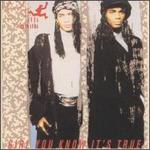 1989—Best New Artist. Milli Vanilli won. The award was revoked after it was revealed that the duo didn’t actually sing on its album. But should the duo have won in the first place? Its Girl You Know It’s True album was a commercial blockbuster (it logged eight weeks at #1 and spawned five top five singles), but the music was, even then, seen as vapid. Three of the duo’s competitors also had top five hits that year: Tone Loc (“Wild Thing,” “Funky Cold Medina”), Neneh Cherry (“Buffalo Stance”) andSoul II Soul (“Back To Life”). The fifth nominee was the highly-regarded folk duo Indigo Girls. After the Grammy was yanked, the academy decided not to give the award to the artist who had the second most votes. (Wouldn’t you love to know who that was?) Instead the Winners Book simply skips over 1989.
1989—Best New Artist. Milli Vanilli won. The award was revoked after it was revealed that the duo didn’t actually sing on its album. But should the duo have won in the first place? Its Girl You Know It’s True album was a commercial blockbuster (it logged eight weeks at #1 and spawned five top five singles), but the music was, even then, seen as vapid. Three of the duo’s competitors also had top five hits that year: Tone Loc (“Wild Thing,” “Funky Cold Medina”), Neneh Cherry (“Buffalo Stance”) andSoul II Soul (“Back To Life”). The fifth nominee was the highly-regarded folk duo Indigo Girls. After the Grammy was yanked, the academy decided not to give the award to the artist who had the second most votes. (Wouldn’t you love to know who that was?) Instead the Winners Book simply skips over 1989.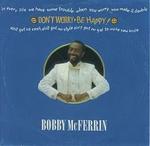 1988—Record Of The Year. Bobby McFerrin’s “Don’t Worry Be Happy” beat Michael Jackson’s “Man In The Mirror.” McFerrin’s novelty-edged single is genial and appealing, but Jackson’s heartfelt and purposeful smash is one of the best recordings of his career (which is saying something). “Don’t Worry Be Happy” also won Song of the Year. “Man In The Mirror” wasn’t eligible for that award because it had first appeared the year before on Bad. (Those eligibility rules change frequently as the Academy strives to find just the right formula.) The song, which was written by Glen Ballard and Siedah Garrett, also richly deserved a Grammy.)
1988—Record Of The Year. Bobby McFerrin’s “Don’t Worry Be Happy” beat Michael Jackson’s “Man In The Mirror.” McFerrin’s novelty-edged single is genial and appealing, but Jackson’s heartfelt and purposeful smash is one of the best recordings of his career (which is saying something). “Don’t Worry Be Happy” also won Song of the Year. “Man In The Mirror” wasn’t eligible for that award because it had first appeared the year before on Bad. (Those eligibility rules change frequently as the Academy strives to find just the right formula.) The song, which was written by Glen Ballard and Siedah Garrett, also richly deserved a Grammy.)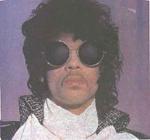 1984—Record of the Year. Prince & the Revolution’s “When Doves Cry” was one of the year’s biggest and best hits. The innovative smash signaled that Prince was ready to go toe-to-toe with Michael Jackson, the hottest artist of the era. Amazingly, “When Doves Cry” wasn’t even nominated for Record of the Year. (Yet the voters found room forChicago’s well-crafted but conventional “Hard Habit To Break.”) Prince & the Revolution’s Purple Rain soundtrack was nominated for Album of the Year, but lost to Lionel Richie’s Can’t Slow Down. (Purple Rain and Bruce Springsteen’s Born In The U.S.A. split the votes of young, rock-leaning voters, while Richie received most of the votes of older, pop-oriented voters.)
1984—Record of the Year. Prince & the Revolution’s “When Doves Cry” was one of the year’s biggest and best hits. The innovative smash signaled that Prince was ready to go toe-to-toe with Michael Jackson, the hottest artist of the era. Amazingly, “When Doves Cry” wasn’t even nominated for Record of the Year. (Yet the voters found room forChicago’s well-crafted but conventional “Hard Habit To Break.”) Prince & the Revolution’s Purple Rain soundtrack was nominated for Album of the Year, but lost to Lionel Richie’s Can’t Slow Down. (Purple Rain and Bruce Springsteen’s Born In The U.S.A. split the votes of young, rock-leaning voters, while Richie received most of the votes of older, pop-oriented voters.)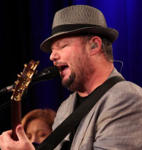 1980—Album of the Year, Record of the Year, Song of the Year.Christopher Cross won all three awards, which created a backlash that he couldn’t overcome. If he had just won Best New Artist, he would have much been better off. It was a classic case of too much, too soon. Cross’ eponymous debut album took Album of the Year, which should have probably gone to Barbra Streisand’s Guilty or Pink Floyd’s The Wall, which rank among those veterans’ greatest triumphs. His hypnotic ballad “Sailing” took Record and Song of the Year, awards that might have gone to Bette Midler’s “The Rose” or Frank Sinatra’s last hurrah, “Theme From New York New York.” It’s not Cross’ fault he swept all the key awards, but he paid the price for it.
1980—Album of the Year, Record of the Year, Song of the Year.Christopher Cross won all three awards, which created a backlash that he couldn’t overcome. If he had just won Best New Artist, he would have much been better off. It was a classic case of too much, too soon. Cross’ eponymous debut album took Album of the Year, which should have probably gone to Barbra Streisand’s Guilty or Pink Floyd’s The Wall, which rank among those veterans’ greatest triumphs. His hypnotic ballad “Sailing” took Record and Song of the Year, awards that might have gone to Bette Midler’s “The Rose” or Frank Sinatra’s last hurrah, “Theme From New York New York.” It’s not Cross’ fault he swept all the key awards, but he paid the price for it.1976—Best New Artist. Starland Vocal Band won on the strength of their #1 hit “Afternoon Delight,” a song so bland it made sex sound boring. It may just be the lamest signature hit ever by an act that walked off this award. Starland Vocal Band, which never returned to the top 40, beat Boston,Brothers Johnson, Wild Cherry and the disco group Dr. Buzzard’s Original Savannah Band.
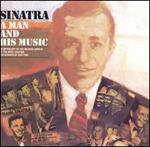 1966—Album of the Year. Frank Sinatra won for A Man And His Music. Sinatra is one of the greatest artists who ever lived, but this was simply a two-disk career retrospective (dating back to his years as the singer for Harry James and Tommy Dorsey). (Under today’s rules, it wouldn’t have been eligible.) And Sinatra had won just the year before for a creative new album, September Of My Years, an introspective look at a man in mid-life. (Sinatra turned 50 in December 1965.) The winner should have been the Beatles’ Revolver (which was nominated). The group would win the following year for Sgt. Pepper’s Lonely Hearts Club Band, but if anybody deserved back-to-back wins in the 1960s, it was them.
1966—Album of the Year. Frank Sinatra won for A Man And His Music. Sinatra is one of the greatest artists who ever lived, but this was simply a two-disk career retrospective (dating back to his years as the singer for Harry James and Tommy Dorsey). (Under today’s rules, it wouldn’t have been eligible.) And Sinatra had won just the year before for a creative new album, September Of My Years, an introspective look at a man in mid-life. (Sinatra turned 50 in December 1965.) The winner should have been the Beatles’ Revolver (which was nominated). The group would win the following year for Sgt. Pepper’s Lonely Hearts Club Band, but if anybody deserved back-to-back wins in the 1960s, it was them.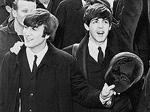 1966—Song of the Year. John Lennon and Paul McCartney won for “Michelle.” I’m very glad they won a Song of the Year Grammy, but I can think of about 40 Lennon-McCartney songs I would rather have seen as their sole Song of the Year champ. Any of their other Song of the Year nominees (“A Hard Day’s Night,” “Yesterday,” “Hey Jude” and “Let It Be”) would have been more Fab. If Grammy voters had wanted to pull a song from Rubber Soul (the album that gave us “Michelle”), “In My Life” would have been a far better choice. (I suspect that “Michelle” caught Grammy voters’ ears because, with its lilting melody and French phrases, it was one of the group’s most “adult contemporary”-style songs. Many Grammy voters were hostile to rock back then.)
1966—Song of the Year. John Lennon and Paul McCartney won for “Michelle.” I’m very glad they won a Song of the Year Grammy, but I can think of about 40 Lennon-McCartney songs I would rather have seen as their sole Song of the Year champ. Any of their other Song of the Year nominees (“A Hard Day’s Night,” “Yesterday,” “Hey Jude” and “Let It Be”) would have been more Fab. If Grammy voters had wanted to pull a song from Rubber Soul (the album that gave us “Michelle”), “In My Life” would have been a far better choice. (I suspect that “Michelle” caught Grammy voters’ ears because, with its lilting melody and French phrases, it was one of the group’s most “adult contemporary”-style songs. Many Grammy voters were hostile to rock back then.)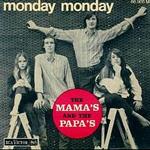 1966—Best New Artist. No award was given. That was a “goof” because it’s one of the Grammys’ marquee categories and also because a great act, the Mamas and the Papas, would have been a prime contender. The vocal quartet was nominated for Record of the Year for its #1 hit “Monday, Monday.” Of course, there’s no guarantee they would have won Best New Artist. New Vaudeville Band was also nominated for Record of the Year for its old-fashioned, novelty-edged smash “Winchester Cathedral.” Other Best New Artist nominees would likely have included the Monkees(“Last Train To Clarksville” was nominated for Best Contemporary (R&R) Recording) and the Association (“Cherish” was also nominated in that category.) Others acts that might have been in the mix: B.J. Thomas, Sergio Mendes and Brasil ’66, Neil Diamond, the Rascals and Tommy James & the Shondells.
1966—Best New Artist. No award was given. That was a “goof” because it’s one of the Grammys’ marquee categories and also because a great act, the Mamas and the Papas, would have been a prime contender. The vocal quartet was nominated for Record of the Year for its #1 hit “Monday, Monday.” Of course, there’s no guarantee they would have won Best New Artist. New Vaudeville Band was also nominated for Record of the Year for its old-fashioned, novelty-edged smash “Winchester Cathedral.” Other Best New Artist nominees would likely have included the Monkees(“Last Train To Clarksville” was nominated for Best Contemporary (R&R) Recording) and the Association (“Cherish” was also nominated in that category.) Others acts that might have been in the mix: B.J. Thomas, Sergio Mendes and Brasil ’66, Neil Diamond, the Rascals and Tommy James & the Shondells.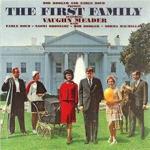 1962—Album of the Year. Vaughn Meader’s The First Family, a spoof of JFK and his family, won, beating Ray Charles’ genre-bridgingModern Sounds In Country And Western Music. The First Family, like most comedy albums, had a short shelf life. (Its life was shortened further when President Kennedy was assassinated just six months after the album’s Grammy win.) Charles’ album, which spawned such classic hits as “I Can’t Stop Loving You” and “You Don’t Know Me,” is timeless. And if Charles had won in a marquee category back then, when he should have, Grammy voters might not have felt the need to shower him with Grammys after he died.
1962—Album of the Year. Vaughn Meader’s The First Family, a spoof of JFK and his family, won, beating Ray Charles’ genre-bridgingModern Sounds In Country And Western Music. The First Family, like most comedy albums, had a short shelf life. (Its life was shortened further when President Kennedy was assassinated just six months after the album’s Grammy win.) Charles’ album, which spawned such classic hits as “I Can’t Stop Loving You” and “You Don’t Know Me,” is timeless. And if Charles had won in a marquee category back then, when he should have, Grammy voters might not have felt the need to shower him with Grammys after he died.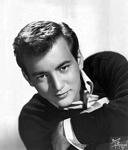 1959—Best New Artist. Bobby Darin won. Darin was one of the most talented and versatile pop stars of his time. How can that possibly be considered a goof? The eligibility period began Jan. 1, 1959, and Darin landed his first top 10 hit, “Splish Splash,” in July 1958. So how did he get nominated? There was no Best New Artist category in 1958, when Darin would have been eligible. It’s possible that Grammy officials let Darin slip into the 1959 pack so he’d finally have a shot at the award. It’s also possible somebody just goofed. If it was a goof, I’m glad they made it. None of the other nominees would have gotten the category off to such a strong start. His rivals were Edd Byrnes (a co-star of TV’s 77 Sunset Strip), who had a novelty hit with “Kookie, Kookie (Lend Me Your Comb),” jazz singersMark Murphy and Mavis Rivers and 16-year old rock’n’roller Johnny Restivo.
1959—Best New Artist. Bobby Darin won. Darin was one of the most talented and versatile pop stars of his time. How can that possibly be considered a goof? The eligibility period began Jan. 1, 1959, and Darin landed his first top 10 hit, “Splish Splash,” in July 1958. So how did he get nominated? There was no Best New Artist category in 1958, when Darin would have been eligible. It’s possible that Grammy officials let Darin slip into the 1959 pack so he’d finally have a shot at the award. It’s also possible somebody just goofed. If it was a goof, I’m glad they made it. None of the other nominees would have gotten the category off to such a strong start. His rivals were Edd Byrnes (a co-star of TV’s 77 Sunset Strip), who had a novelty hit with “Kookie, Kookie (Lend Me Your Comb),” jazz singersMark Murphy and Mavis Rivers and 16-year old rock’n’roller Johnny Restivo.